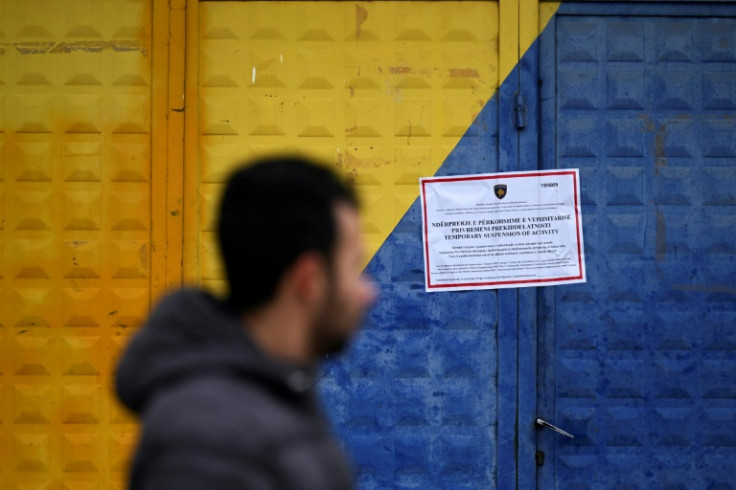
Kosovo police on Wednesday raided 10 Belgrade-linked government offices in ethnic Serb areas, the interior ministry said, the latest move by Pristina to dismantle a Serbian system of social services and political offices in the country ahead of parliamentary elections.
Serbia denounced the raids as a "dangerous escalation" just weeks ahead of the vote in majority-Albanian Kosovo, whose independence Serbia has refused to recognise.
Animosity between Kosovo and Serbia has persisted since the war between Serbian forces and ethnic Albanian insurgents in the late 1990s, and Belgrade refuses to acknowledge Kosovo's declaration of independence in 2008.
Most of the offices targeted Wednesday provide no actual services on the ground, but have nevertheless long served as the symbolic presence of Serbia's political institutions inside Kosovo.
"The era of parallel and criminal municipalities and institutions of Serbia in the Republic of Kosovo ends," Interior Minister Xhelal Svecla said in a Facebook post. He listed the locations of the offices closed, including one in the capital Pristina.
Serbian post offices and banks were also shuttered during the operation, Svecla said.
Serbian Foreign Minister Marko Djuric called the closures a "dangerous escalation".
"These aggressive moves are not just an attack on institutions but a blatant attempt to undermine the collective rights and identity of Serbs in Kosovo," Djuric said in a social media post.
Employees at the offices said the Kosovo authorities had told them they did not have the proper paperwork to remain open, and signs posted on the buildings said activities on the premise had been suspended.
"They arrived at the office and told us that we could no longer work... they are demanding a certificate. I don't understand what they want," Novak Zivic, who oversees the Serbian local government office in Pristina, told the broadcaster RTS.
During an interview broadcast on Serbian television, President Aleksandar Vucic said employees affected by the closures would continue to be paid as usual.
They "will not lose their jobs, they will have an income and will support their families because Serbia takes care of them," Vucic said.
The raids come as ethnic tensions simmer in Kosovo ahead of February's parliamentary elections.
Kosovo's Prime Minister Albin Kurti has made his efforts to clamp down on Belgrade's remaining institutions based in Kosovo part of his campaign platform.
In the past year, Kosovo authorities have effectively outlawed the Serbian dinar, closed banks that relied on the currency and shuttered post offices where pension payments could be cashed.
Kosovo Serbs can no longer drive cars with Serbia plates and must have local driving licences.
And while past raids have largely focused on ethnic Serb communities living in the restive north near the border with Serbia, Wednesday's operations targeted other Serb enclaves scattered across central and southern Kosovo.
After this latest operation, Serb-administered schools and healthcare clinics are the last remaining institutions backed by Belgrade still operating inside Kosovo.
The spike in tensions comes after EU- and US-backed negotiations between Kosovo and Serbia all but collapsed in 2023.
In the wake of the raids, a meeting in Brussels between Kosovo and Serbian representatives was cancelled on Wednesday, where they were set to discuss a recent deal on the search for missing people from the 1990s conflict.
"The agreement is impossible in the current conditions created today by Kurti," said the Serbian delegation, broadcaster RTS reported.
Kosovo is overwhelmingly populated by ethnic Albanians, but in the northern stretches along the border with Serbia ethnic Serbs remain the majority in several municipalities.
Both Washington and the EU criticised Wednesday's closures, with a spokesman from the US embasssy in Pristina telling local media that the move could "undermine the aspiration of Kosovo to join the Euro-Atlantic community".







